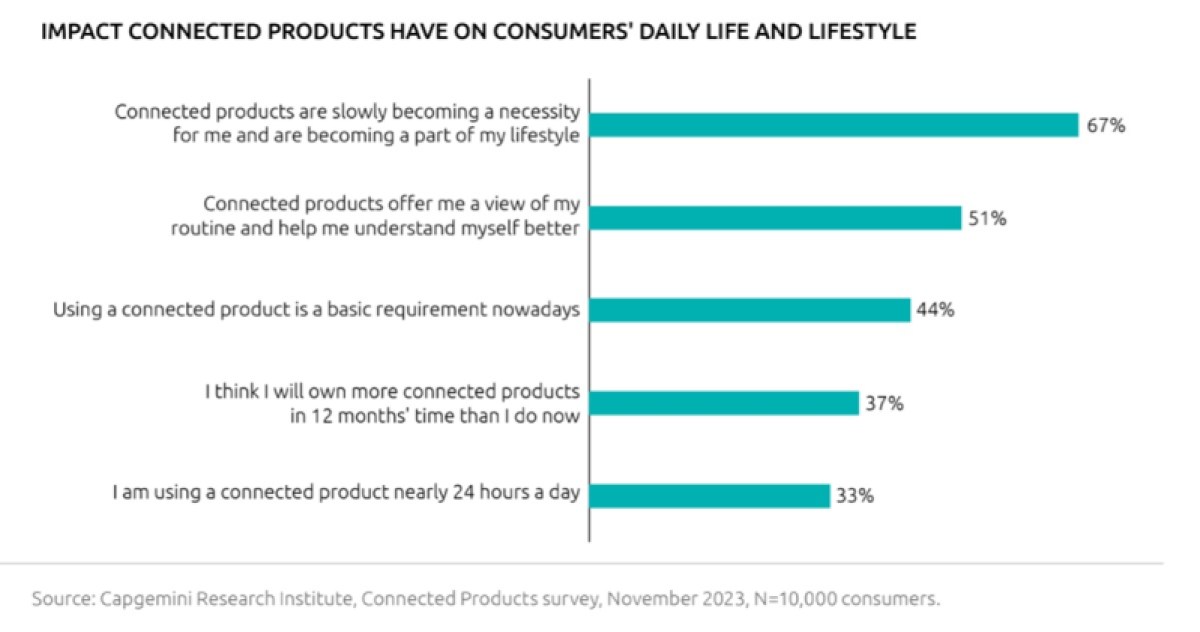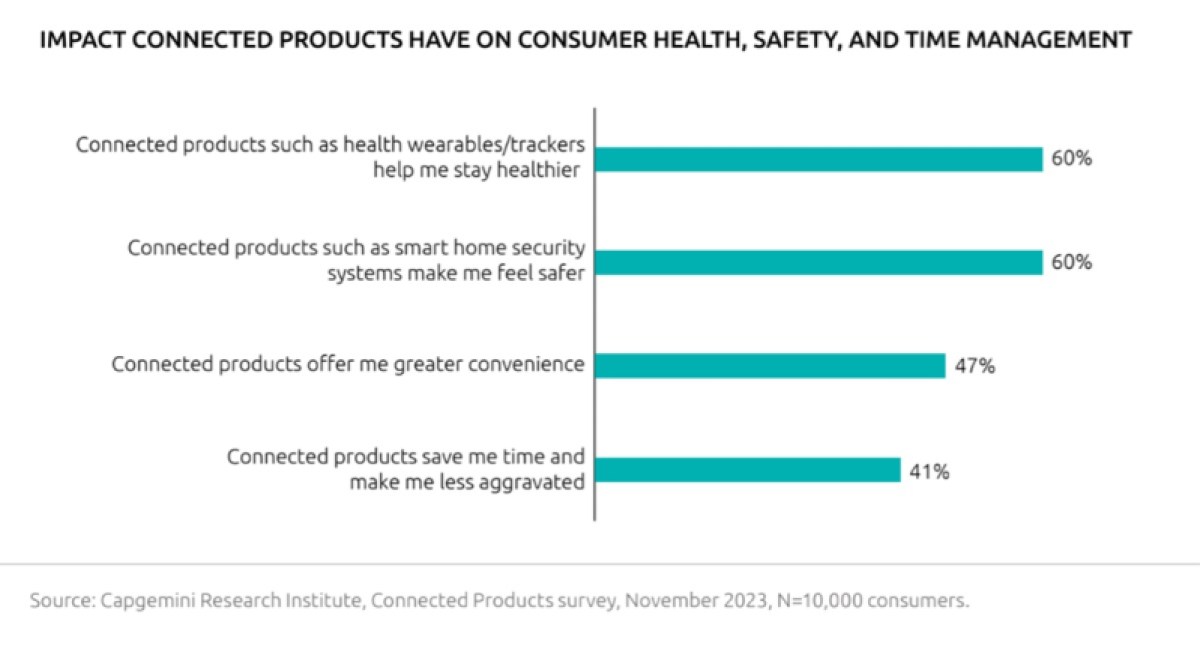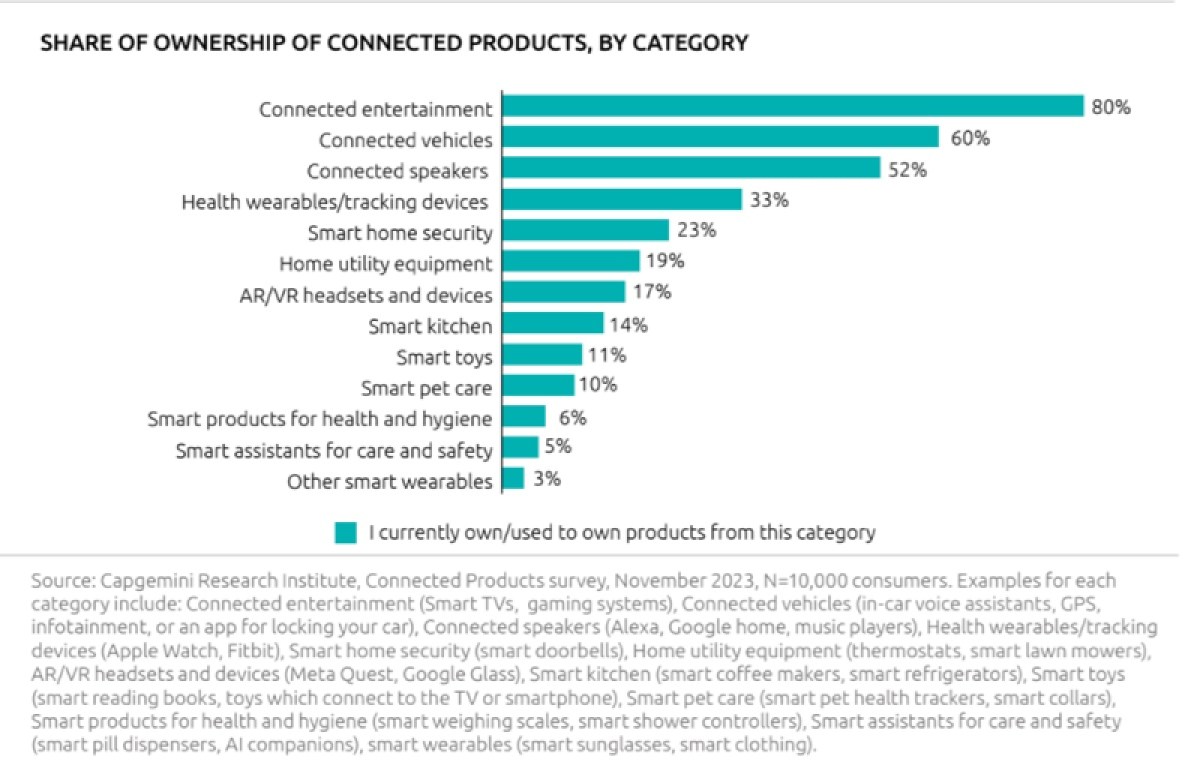Consumers are demanding a unified interface for connected devices, according to a report by Capgemini.
The survey amplifies consumers’ resounding call for a unified interface for connected products, with 65% expressing a desire for seamless interoperability across devices, based on the report from the Capgemini Research Institute.
Consumers also exhibit a willingness to upgrade for enhanced comfort and convenience. Further, nearly seven in ten show an interest in having an always on AI-powered device if it improves their life. But one in two say that many conversational AI devices fail to give them contextual relevance in answers.
One in two consumers also show frustration about the number of connected devices or services they have to deal with regularly while two in three believe it would be so much more convenient to have just one single interface for all connected products.
The study underscores the ubiquitous integration of connected devices into consumers’ daily routines, with more than one-third of respondents planning to expand their collection of such devices in the upcoming year. Health and home security devices are poised to drive significant sales in this domain, reflecting an escalating emphasis on personal well-being and security.

The study’s title is Connected Products: Enhancing Consumers’ Lives with Technology. The company gathered insights from 10,000 respondents across 13 countries.
The results reflect an evolving consumer landscape, signaling increased adoption and expectations from the realm of connected products.
Consumer preferences and trends

Entertainment devices and connected vehicles: The research highlights the prevalence of connected entertainment systems, encompassing smart TVs and gaming systems, among four in five consumers globally. Additionally, ownership of connected vehicles has surged, with 60% of respondents owning one. However, ownership rates significantly vary across countries, reaching a high of 77% in the U.S. and a low of 38% in Canada.
Smart home security and smart healthcare: Anticipated purchases in the next 12 months show a surge in demand for smart home security and healthcare devices. This shift underscores a growing inclination towards personal safety, well-being, and a deeper integration of technology into everyday life.
Voice assistants and wearables: The proliferation of voice assistants continues to grow, with 85% of respondents utilizing some form of voice assistant at home, on mobile, or in their vehicles, primarily for product and service inquiries. Moreover, there is a rising interest in wearables as an alternative to reducing screen time, with healthcare wearables emerging as a leading category for intended purchases in the coming year.
Interoperability, data privacy, and sustainability

Consumers want devices that work with each other. In addition to interoperability, consumers have heightened awareness regarding e-waste and carbon footprints prompts consumers to seek sustainable practices from product developers. A striking bit is the predicament faced by 50% of consumers who possess outdated technology at home and struggle to dispose of it responsibly.
Despite high levels of trust in healthcare wearables’ data, just 36% of respondents express contentment with the privacy offered by connected products. Concerns about companies accessing personal health data through these devices evoke vulnerability among consumers.
Nicolas Rousseau, a group leader at Capgemini, said the report underscores the significance of connected devices in simplifying consumers’ lives.
“Consumers are using connected devices as a means to make their lives easier, but they can be so much more than that. Connected devices hold the potential to enable hyper-personalized products and services. Technologies like generative AI can help achieve new levels of connected experience and consumer satisfaction,” Rousseau said in a statement. “However, issues around data privacy and security still need more focus to secure consumer trust, along with a commitment to true interoperability and frictionless connectivity. Without these components, users will become frustrated and market momentum will slow. As awareness is rising on e-waste and carbon footprints, consumers’ expectations on the sustainability of products need also to be part of the equation.”
Methodology
Capgemini Research Institute conducted a survey of 10,000 consumers aged 18 and above across Asia Pacific, Europe, the United Kingdom, and North America in November 2023. Additionally, in-depth interviews with industry executives in the connected technology space supplemented the survey’s findings.
GamesBeat’s creed when covering the game industry is “where passion meets business.” What does this mean? We want to tell you how the news matters to you — not just as a decision-maker at a game studio, but also as a fan of games. Whether you read our articles, listen to our podcasts, or watch our videos, GamesBeat will help you learn about the industry and enjoy engaging with it. Discover our Briefings.
READ SOURCE












